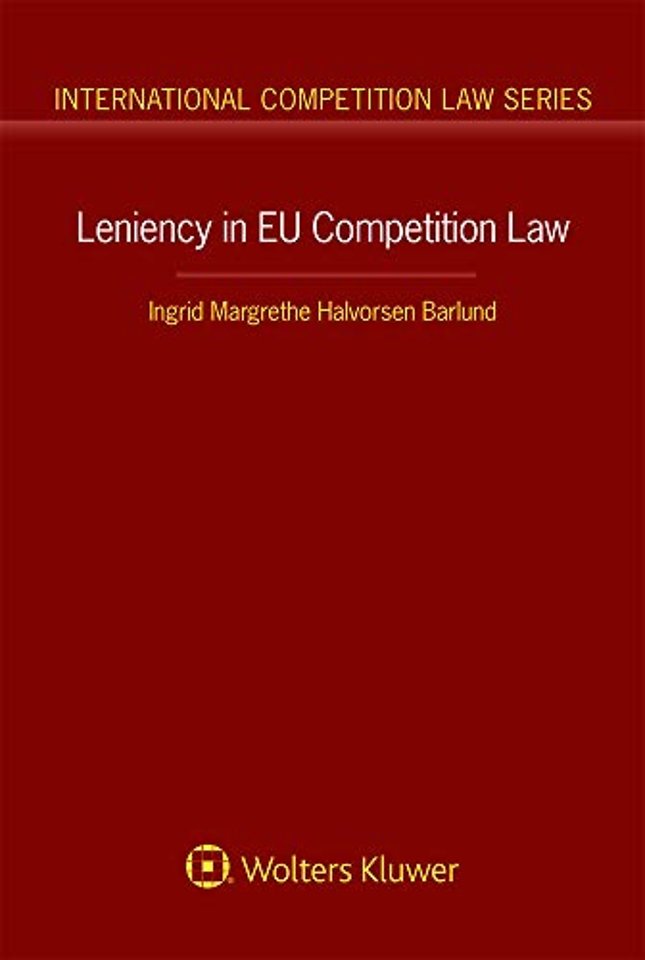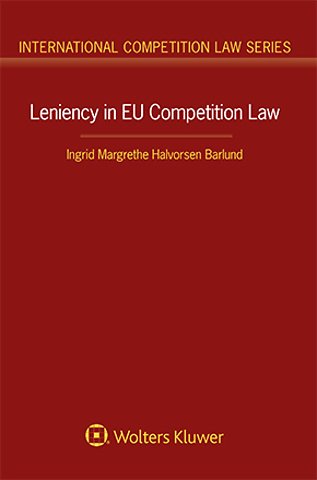Leniency in EU Competition Law
Samenvatting
International Competition Law Series 84
About this book:
Leniency in EU Competition Law provides a comprehensive analysis of the leniency procedure in the European Union (EU) cartel enforcement. Applications for lenient treatment by whistleblowers are an essential feature of cartel enforcement. Leniency has emerged as one of the main enforcement instruments used by competition authorities to combat cartels. Offering immunity from punishment is believed to destabilise the already existing cartels and deter undertakings from entering into such arrangements. This book offers the first in-depth analysis of the scope of leniency in EU competition law, considering three crucial ramifications – ensuring a leniency applicant can self-report with confidence , retaining the right to compensation of those who have suffered losses due to the cartel and furthering the objective of undistorted competition within the internal market.
What’s in this book:
With a thorough insight into the interaction between the leniency and public and private enforcement of cartels, the author extensively explains such aspects of the subject as the following:
- who is eligible for leniency;
- liability of an immunity recipient;
- the EU fining system;
- disclosure of leniency evidence;
- scope of public authorities reaching out to cartel infringers;
- the immunity recipient and follow-on damages claimants;
- the immunity recipient and subsequent leniency applicants;
- effect of the Damages Directive; and
- the European Economic Area dimension.
The author calls for an increased harmonisation at national level in the EU and compares with leniency practice in US antitrust law.
How this will help you:
With a progressive perspective on leniency in light of the recent regulatory developments in EU and EEA competition law, this book offers cogent suggestions about how the shortcomings of the Commission’s leniency offer can be ameliorated and which regulatory steps should be taken to give the policy greater leverage. Its practical character will be recognised and welcomed by competition law practitioners and policymakers, who will strengthen their grasp of leniency procedure and discern implications for competition infringement cases.
Specificaties
Inhoudsopgave
Acknowledgements
PART I
Leniency as a Public Enforcement Instrument Within EU Competition Law
CHAPTER 1
Introduction
CHAPTER 2
Expanding on the Main Question
CHAPTER 3
Leniency: Theory and Practice
CHAPTER 4
US Antitrust Enforcement: A Source of Inspiration for Antitrust Enforcement in the EU
CHAPTER 5
The Commission’s Leniency Notice: Immunity or Reduction of Fines
CHAPTER 6
How to Regulate the Roles Within a Cartel
CHAPTER 7
The EU Fining System: Fines as the Only Leverage in the Commission’s Leniency Policy
CHAPTER 8
Suggestions for Giving the Commission’s Leniency Offer More Leverage
PART II
Leniency and Private Enforcement Within EU Competition Law after the Damages Directive
CHAPTER 9
The Right to Compensation for Losses Suffered Due to Cartels: A Long Journey
CHAPTER 10
Disclosure of Leniency Evidence: A Delicate Topic
CHAPTER 11
Does the Non-disclosure of Leniency Statements Contradict Primary Law?
CHAPTER 12
The Rules on the Liability of an Immunity Recipient: Fully Liable in the End
CHAPTER 13
Access to Leniency Evidence and the Liability of an Immunity Recipient
PART III
Leniency Within the EEA/EFTA
CHAPTER 14
Some Remarks on the EEA Dimension of the Topic
PART IV
Connecting the Dots: Policy Suggestions on Leniency Within the Public and Private Enforcement of EU Competition Law
CHAPTER 15
Connecting the Dots: Revisiting the Conflicts and Approaches
CHAPTER 16
Final Remarks and Looking Ahead
Bibliography
Tables of Cases, Opinions and Decisions
Tables of Legislation
EU and International Administration
Index
Anderen die dit boek kochten, kochten ook
Net verschenen
Rubrieken
- aanbestedingsrecht
- aansprakelijkheids- en verzekeringsrecht
- accountancy
- algemeen juridisch
- arbeidsrecht
- bank- en effectenrecht
- bestuursrecht
- bouwrecht
- burgerlijk recht en procesrecht
- europees-internationaal recht
- fiscaal recht
- gezondheidsrecht
- insolventierecht
- intellectuele eigendom en ict-recht
- management
- mens en maatschappij
- milieu- en omgevingsrecht
- notarieel recht
- ondernemingsrecht
- pensioenrecht
- personen- en familierecht
- sociale zekerheidsrecht
- staatsrecht
- strafrecht en criminologie
- vastgoed- en huurrecht
- vreemdelingenrecht







